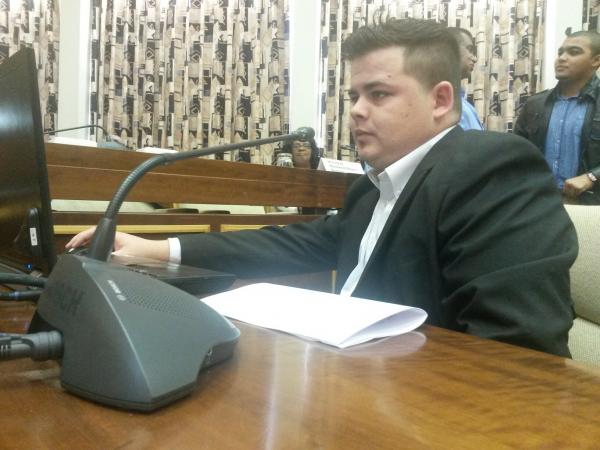“Police were firing and I ran for cover”

An eye-witness to the eviction of hundreds of Nomzamo residents in June described the “chaotic” scene to the ministerial inquiry this morning.
“I saw a pregnant woman being carried away. An old frail man that must’ve fallen to the ground was just lying there and couldn’t get up. Police were firing at the crowd and I ran for cover behind one of the water cannons,” said Strand resident Tim Flack.
The inquiry was appointed by Human Settlements Minister Lindiwe Sisulu after the demolition of shacks on land owned by the South African National Roads Agency (SANRAL) in early June.
The inquiry, chaired by Advocate Denzil Potgieter, began yesterday in Cape Town with testimony from the national Human Settlement Department and the Housing Development Agency.
The inquiry’s mandate is to investigate the circumstances around the evictions and the role of police, Sanral, national, provincial and local government in the process, and to find out who the affected residents are and how they came to live on the land.
Premier Helen Zille said today that the province would not submit oral evidence to the commission. She said the province had been given one working day to prepare a submission, and that the inquiry had all the hallmarks of a “political hit squad”.
“We do not believe that the present processes pass legal or constitutional muster,” she said.
Zille questioned why similar inquiries had not been set up to investigate evictions elsewhere in the country.
She said DA MP Makashule Gana had asked Sisulu about the composition of the committee, which included “ANC stalwart Annelize van Wyk who pre-judged the matter from the start in a twitter tirade” blaming the City of Cape Town for the Lwandle evictions, ANC MP Nonhle Dambuza and former ANC MP Mampe Ramotsomai. Sisulu had not answered Gana’s questions.
Zille said the “ANC-supporting” Ses’khona People’s Movement had been involved in land invasions and had hijacked the City’s relief effort, and that ANC councillors had also been involved.
A written submission to the inquiry by Mayor Patricia De Lille on behalf of the City also expressed concern. De Lille wrote that on three occasions that the City had written to Sisulu requesting clarity on the powers she used to establish the inquiry. De Lille wrote, “We would have expected to have been consulted on the terms of reference and composition of the inquiry.” She said that the City had not yet received a satisfactory response and “we will therefore not be providing oral testimony to the inquiry.”
During today’s hearing, Flack, a Western Cape organiser for the South African Defence Union, said he had been alerted to the evictions by pictures on twitter.
“When I got there… a part of the informal settlement had already been demolished.”
He had tried to get help from the City’s disaster risk management centre but had been told the City could not help because the land was privately owned.
“That evening I tweeted the mayor and the premier. I only got a response on twitter from the premier which just shifted the blame to SANRAL,” he said.
Flack was asked to provide the inquiry with details of the correspondence at a later stage.
“I went back the next day and I was sent from pillar to post. It was drizzling on and off throughout the day. At that stage between 60 and 70 people were in the road. A lot of other people were trying to get their belongings from their homes. When police arrived, members of various religious groups like the Methodist church tried to negotiate with them to stop. Police then moved between the shacks to make sure no one was in their homes.
“We were given five minutes to disperse,” he said.
Flack presented photographs and video clips which illustrated how the standoff between police and residents quickly became violent on 3 June.
“One of the police was telling me he had been hit by a rock. Then I just heard a thunder flash about two and a half metres from me. Rocks were thrown at police and more shots were fired with tear gas canisters. I saw teens throwing a petrol bomb at a car, but it didn’t go off,” he said.
Flack said police and law enforcement officers had played an important role in the evictions.
“I managed to get hold of the interdict. I read that only the police were authorised to assist in the evictions, but I saw law enforcement and metro police there. The police played a much bigger role in the evictions. They were moving people like sheep,” he said.
No notice boards had been erected on the site to notify residents of the evictions, though the interdict had stipulated this, he said.
However, De Lille’s submission said, “The City’s law enforcement agencies played no direct role in the Sanral eviction process.” The mayor wrote, “The eviction was carried out by the Sheriff, with the support of the SAPS.” She said that the City’s presence was requested by SAPS because the City has land in the vicinity that “needed to be protected”.
The evicted families have been housed at the nearby Nomzamo Community Hall. They are to be moved back to the Nomzamo site temporarily while alternative land is found.
The hearing will continue on Monday.
Support independent journalism
Donate using Payfast


This article is licensed under a Creative Commons Attribution-NoDerivatives 4.0 International License.
